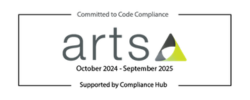Guest blog: Professor Ketan Dhatariya
)
Professor Ketan Dhatariya
Consultant Diabetes & Endocrinology / Honorary Professor at the University of East Anglia
Chair of Joint British Diabetes Societies for Inpatient Care
--
We all know what the risks are for people developing diabetic ketoacidosis (DKA) – in those already diagnosed with diabetes it is most frequently infection, insulin omission (deliberate or accidental), or poor treatment adherence, pump failure and so on. Of course, it is also occasionally the presenting feature of new onset diabetes – type 1 or type 2.
Most of us have also seen the devastating effect that COVID-19 has had on people with diabetes. They are not more likely to catch the virus, but are more likely to experience severe adverse consequences, in particular those with type 1 diabetes, those who are over 65 years old, from non-white ethnicity and those living with being overweight or obese. Shivani Misra and colleagues (me included!) looked at NHS England data on the impact of the pandemic on the rates of emergency admissions for DKA during the first wave (1st March 2020 to 30th June 2020) and then afterwards (post-first wave) – 1st July to 31st October 2020, and then the second wave – 1st November 2020 to 28th February 2021. The team compared the rates to those from the same time periods for the preceding three years.
They found that there was a six per cent increase in the numbers of people presenting with DKA in the first wave and in the post wave period, and a seven per cent increase in the second wave. However, in the first wave for those with a pre-existing diagnosis of type 1, the rates were lower than the previous three years – down by 19 per cent, but a rise in those with type 2 diabetes – up by 41 per cent, with an increase of 57 per cent in those newly diagnosed with diabetes. These trends – lower admissions for those with known type 1, and much higher in those with type 2 or newly diagnosed – continued in the post-first wave and second wave.
While the data are essentially descriptive, it is interesting to speculate as to why they occurred. It would seem that some of the reasons are ‘behavioural’ – that those with type 1 diabetes, forced to stay at home during lockdown, took extra care of themselves – or when they became unwell, managed to successfully follow their ‘sick day rules’, or that those with type 2 diabetes did not know how to look after themselves – i.e. not being given a similar set of sick day rules, and so became progressively more ill. As with those who presented in DKA who were newly diagnosed, the lack of swift face-to-face access to primary care, reticence to seek help either from primary care or a delay in going to hospital because of the perceived risk of catching COVID-19 or spreading COVID-19, meant that by the time they did present they were a lot sicker than in pre-pandemic times.
These data throw up many questions around what were the reasons for people not seeking help or being able to seek help. Does having COVID-19 infection increase the risk of developing DKA or have a direct effect on the pancreatic beta cells?



)
)
)
)

)
)
.jpg/fit-in/1280x9999/filters:no_upscale())
.png/fit-in/1280x9999/filters:no_upscale())
)
)
)
